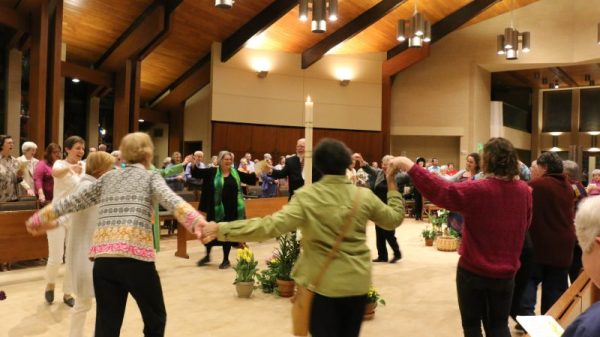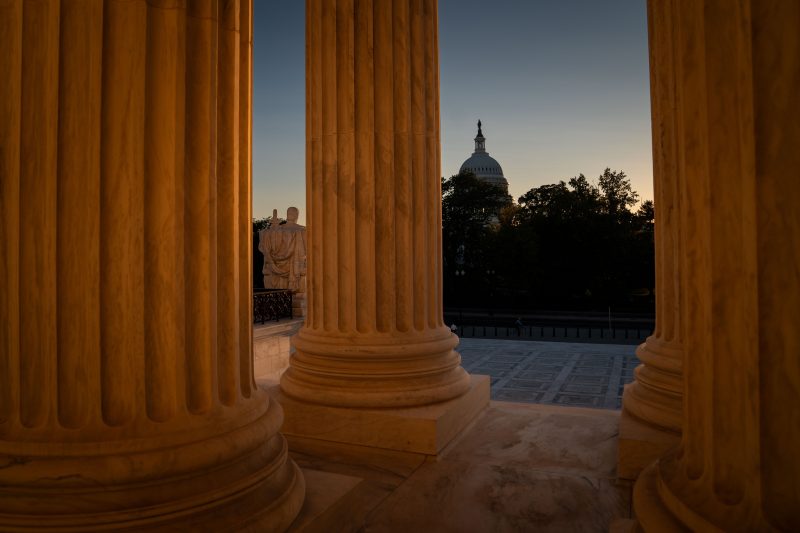The Supreme Court on Tuesday allowed a local Texas election to go forward under a map that a lower court had found diluted the votes of Black and Latino residents.
The order came in response to a challenge from civil rights advocates opposed to the voting districts in Galveston County. While the case involves the boundaries in just one locality, it could have broader implications for challenges to election maps and the protection of voting rights nationwide.
As is customary with emergency applications, the Supreme Court majority did not explain its rationale for leaving the map in place for now. That means it is unclear whether the majority thought it was too close to the election campaigns to get involved, or if some justices are sympathetic to the argument that “majority-minority” districts are not covered by the Voting Rights Act.
The court’s three liberal justices dissented from the decision not to stay an order from the U.S. Court of Appeals for the 5th Circuit. That order said the map drawn by Republican county commissioners could be used for two reasons: first, because the election was not far off; and second, because the appeals court could eventually overturn its past rulings that the Voting Rights Act in some cases permits the creation of majority-minority districts.
Justice Elena Kagan said the appeals court’s order disrupted the status quo.
“In imposing a different map, acknowledged to violate current law — on the theory that the Circuit might someday change that law — the Court of Appeals went far beyond its proper authority,” Kagan wrote in a brief statement that was joined by Justices Sonia Sotomayor and Ketanji Brown Jackson.
At issue is the Galveston County Commissioners Court, made up of four county commissioners elected from single-member precincts and one county executive, called a judge, elected by the entire county. For three decades, starting in 1991, one of the four commissioner precincts had a majority-minority population, with Black and Latino residents accounting for 58 percent of the population of that precinct.
In 2021, the commissioners enacted a map for county commissioner elections that did not include a district in which Blacks and Latinos would make up a majority.
A federal district judge said that map violates Section 2 of the Voting Rights Act by undercutting the votes of Black and Latino residents, who together compose 38 percent of the county’s eligible voter population, according to court filings. In late November, U.S. District Judge Jeffrey Vincent Brown, a nominee of President Donald Trump, adopted and ordered the use of a new map that he said “remedies the vote dilution present.”
A three-judge panel of the 5th Circuit agreed that the district court’s ruling was correct under existing precedent. But the panel suggested that a full complement of 5th Circuit judges should change the circuit’s precedent. Last week, the full 5th Circuit put the panel’s order on hold and allowed the challenged map to remain while the appeals court rehears the matter.
Although the election was still about a year away, Judge Andrew S. Oldham, writing for the majority, said it was too close to candidate qualifying deadlines for the full 5th Circuit to consider and resolve the case, and the map with no majority-minority districts should be used.
He also said the full circuit was unlikely to “require race-based redistricting with no logical endpoint.”
Dissenting Judge Stephen A. Higginson, who was joined by three others, protested the full circuit’s decision “giving ourselves a half-year delay just to hear oral argument to reconsider law that has been ours for decades.”
“That delay-and-default ruling has no precedent and stands in stark contrast to the Supreme Court’s guarantee to all of an equal right to vote, which the Court reminded us almost a century and a half ago, is ‘preservative of all rights,’” Higginson wrote.
The case is Petteway v. Galveston County.





























